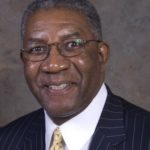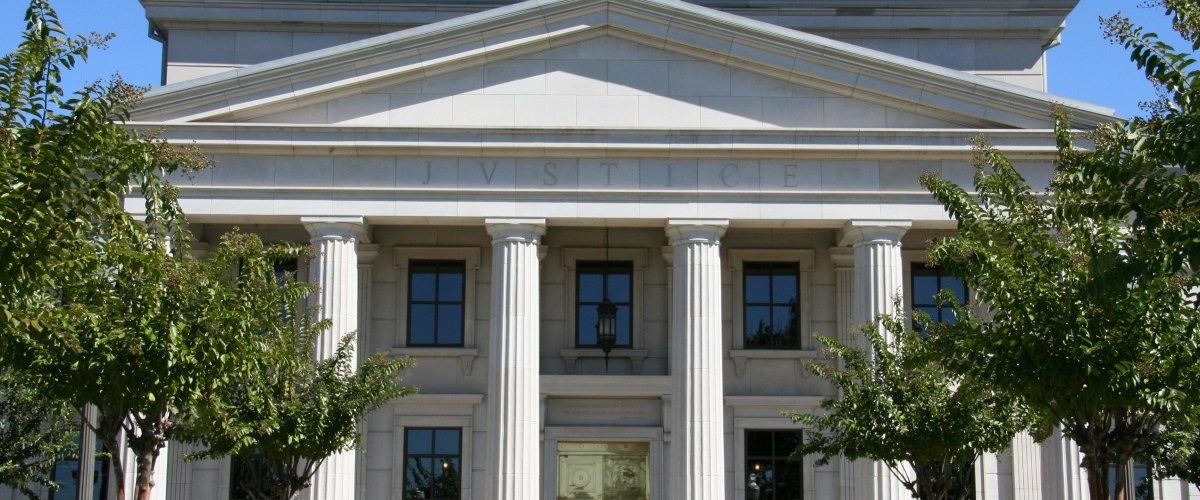Justices of the Arkansas Supreme Court on Thursday refused to recuse themselves from a case claiming they improperly barred a Little Rock judge from hearing death penalty cases because he exercised his religious liberty by attending an execution vigil in his other role as a Baptist pastor.
The Supreme Court denied without comment Judge Wendell Griffen’s motion seeking their disqualification from his petition to restore his authority to hear and decide capital cases. Just one of the seven members of the court, Associate Justice Josephine Hart, favored turning the case over to special justices.

Front of Arkansas state judicial building
The Supreme Court hastily removed Griffen from all capital punishment cases after he attended an anti-death penalty protest outside the governor’s mansion on Good Friday in 2017. Before attending the vigil, Griffen, pastor of New Millennium Church in Little Rock, signed an order temporarily blocking the use of an execution drug allegedly obtained by the state by fraud.
McKesson Medical Surgical lnc., a major U.S. pharmaceutical firm, sued Arkansas in 2017, claiming the Arkansas Department of Corrections intentionally sought to circumvent the company’s policies to procure Pfizer’s vecuronium bromide under the guise that it would be used for medical purposes.
Learning that the state was potentially holding the product to use in lethal injections, McKesson immediately requested and was assured that the product would be returned. The company issued a full refund to the state and made several additional requests for the product, but it was never returned.
Griffen signed a temporary restraining order on April 14, 2017, citing a threat of imminent and irreparable harm and finding evidence that the drug company would likely win the case on the merits if it were to proceed to trial.
The next day the state’s Republican attorney general asked the Supreme Court to lift the temporary restraining order and remove Griffen from hearing the case. The Supreme Court gave Griffen until 9 a.m. the Monday after Easter to respond. When he didn’t meet the deadline, justices disqualified him not only from the property dispute but all cases involving the death penalty or the state’s execution protocol, whether criminal or civil.

Wendell Griffen
In his July 10 motion asking the Supreme Court justices to disqualify themselves from his attempted reinstatement, Griffen said the court bypassed legal procedure – thereby not giving him enough time to respond — and that justices allowed political pressure to influence their rush to judgment.
He said a number of white legislators had voiced displeasure with Griffen, who is African-American, both for his participation in the death penalty protest and other “extra-judicial published writings and comments made in his capacity as an ordained Baptist pastor in the religion of Jesus.”
The state Judicial Discipline and Disability Commission dismissed an ethics complaint against Griffen on June 12.
Griffen said the Supreme Court ruled against him in retaliation “for exercising his religious freedom” and “out of discriminatory racial animus” based on his African-American ancestry and racial identity.
Because of that, he argued, it “might reasonably be questioned” whether the justices would rule impartially in his petition to have his judicial authority restored.
“It is ironic that the same justices who barred me for not recusing because of my general views on a topic which was not even before me at the time, will not recuse themselves despite their specific negative views of me — a litigant who is before them right now,” Griffen said in a statement quoted by the Associated Press.
Previous stories:
Judge Wendell Griffen wants power to hear death penalty cases restored
Report: Ethics complaint against anti-death penalty pastor/judge dismissed


